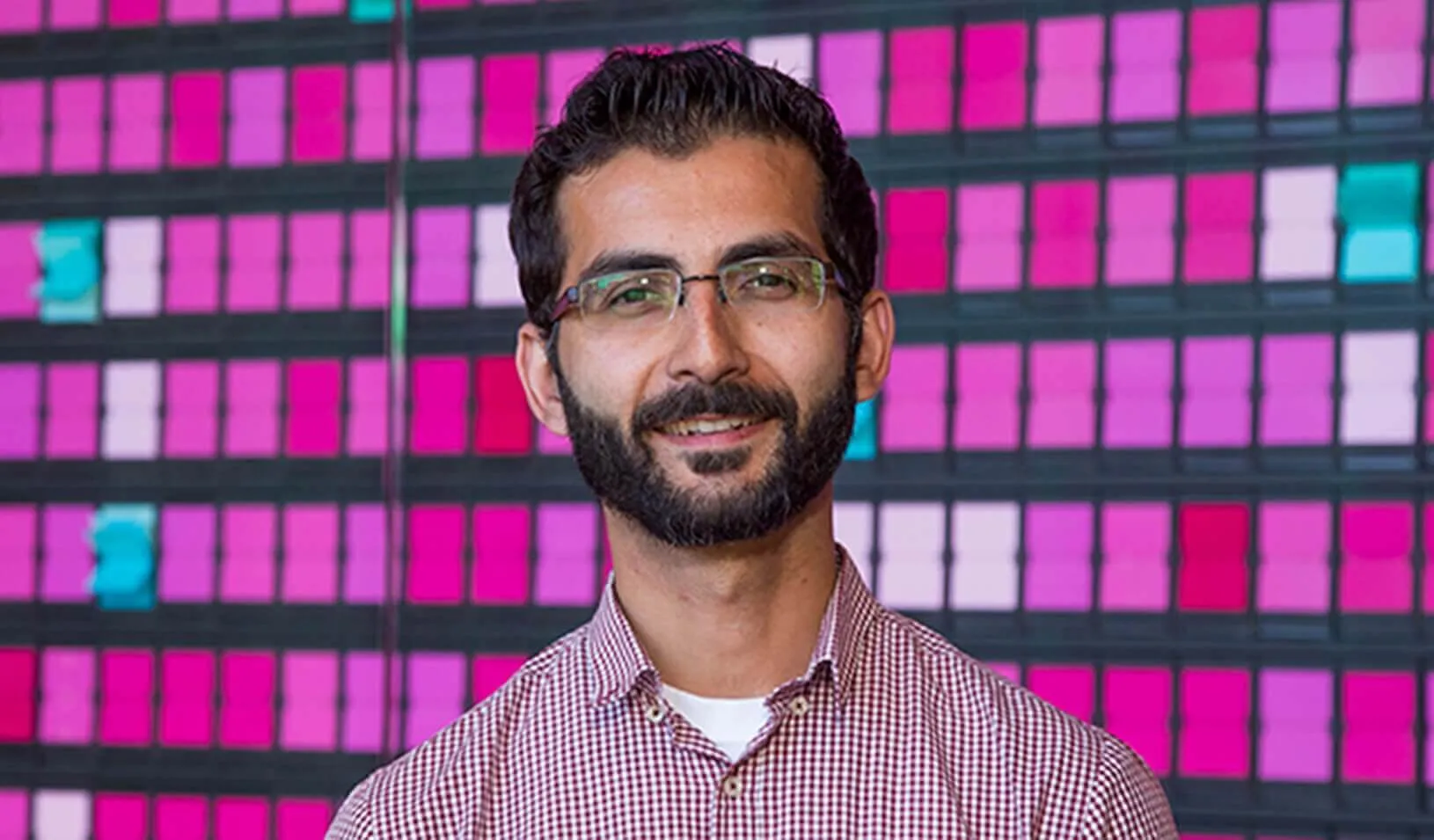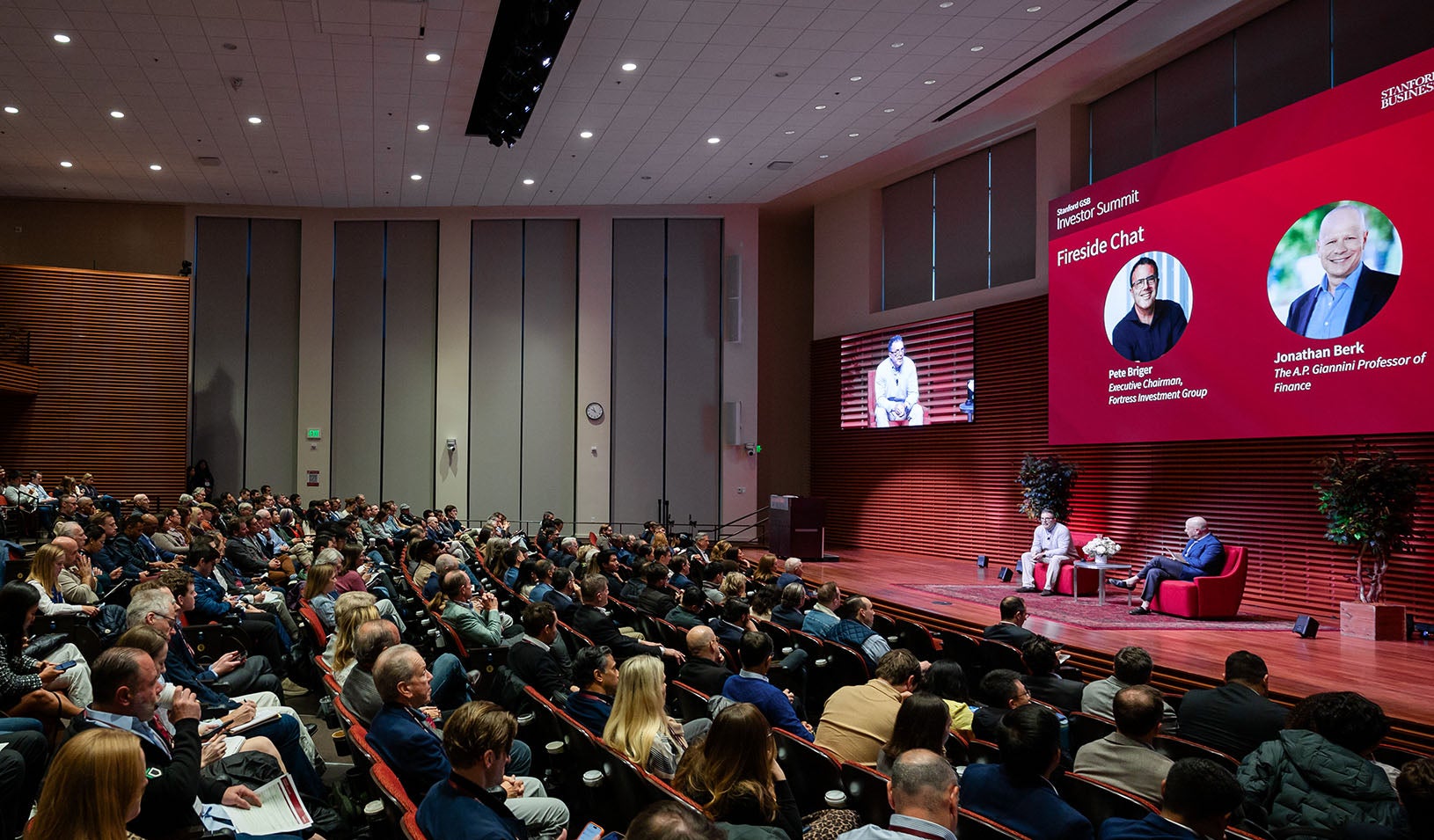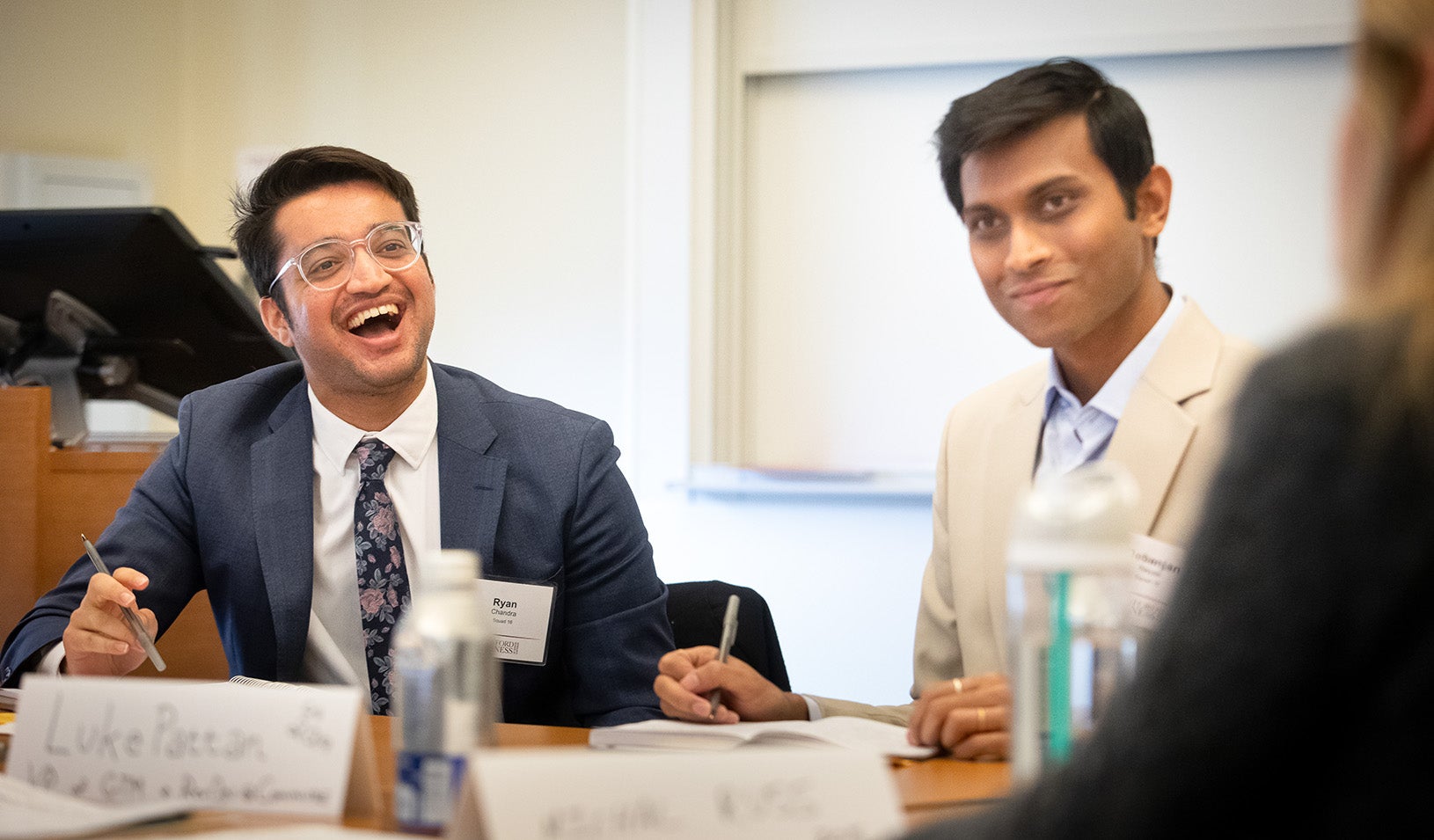August 01, 2017
Leaving behind a career in telecommunications, Muhammad Mustafa, MS ’17, is aiming to help others through a jobs app that involves no reading: Employers and workers can communicate instead through icons and audio. The idea for his app, EasyJob, originated when Mustafa started noticing the many illiterate people — such as security guards and gardeners — who can’t access much of the information that’s now available electronically.
EasyJob has been developed with support from the Stanford Social Innovation Fellowship that Mustafa was awarded this May. He is using the $110,000 stipend to launch EasyJob in his homeland, Pakistan, where 70 percent of the country’s rural poor are illiterate; the launch is scheduled for Sept. 1. He is also researching the market in Nigeria.
Mustafa’s mobile app draws on concepts used by two large social media platforms: Facebook and WhatsApp.
“I believe Facebook is a leader in developing an icon-based interface that lets illiterate users get familiar with the internet,” Mustafa told Forbes. “WhatsApp’s voice-notes feature has made it very easy for low-literacy people to communicate.”
Read the full story from Forbes.
For media inquiries, visit the Newsroom.



